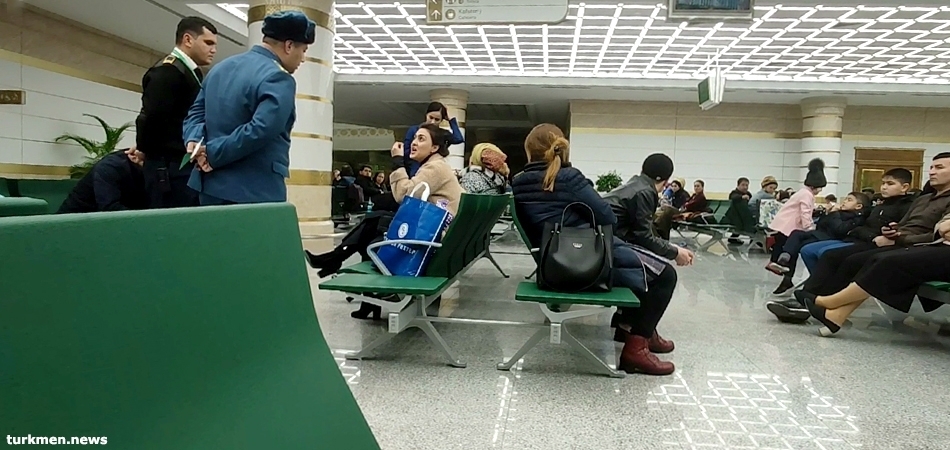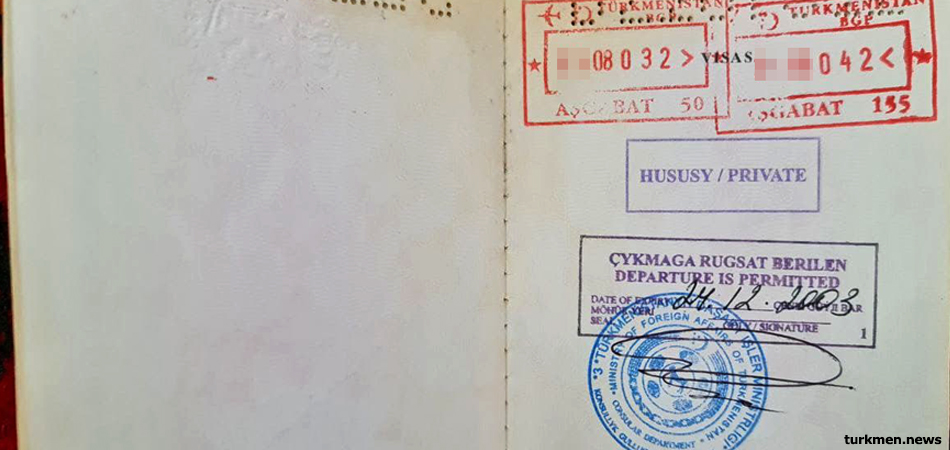
Vengeful Migration Service Won’t Let Its Citizens Leave Turkmenistan
29.08.2020
The Turkmen authorities intend to continue restrictions on citizens leaving the country even after the pandemic. At present the government is considering two options for citizens to obtain advance permission to leave Turkmenistan: either at the migration service or the Foreign Ministry. The country’s leadership is extremely concerned at the flood of departures from Turkmenistan, according to an informed turkmen.news source in one of the ministries. In early July Radio Azatlyk reported that fewer than 2.7 million citizens were left in the country – less than half the official population figure.

“The government is considering making it a permanent requirement for citizens to obtain permission to leave the country, i.e. after the end of the coronavirus pandemic,” the source said. “Either the Foreign Ministry or the migration service will issue permission.”
This is basically a return to the practice of issuing exit visas, which was in place in Turkmenistan in 2003-2004. Citizens had to apply to the Foreign Ministry’s consular department in Ashgabat to obtain a special stamp in their passports granting permission to leave the country within a set timeframe. The rule was introduced after the alleged assassination attempt against the first president, Saparmurat Niyazov.
The source said that the government is seriously concerned at the current size of the population of Turkmenistan, and fears mass emigration once regular flights resume after the pandemic.
At present during the pandemic, citizens leave the country on rare charter flights, mainly to Moscow. It is not easy to get a place on these flights, though. Only people who are leaving permanently or those who have to leave urgently on humanitarian grounds or for medical treatment can get onto the flights. In order to get a place on the Russian charter flights citizens must apply to the Russian embassy in Turkmenistan. The embassy then draws up passenger lists and sends them to the Turkmen migration service for their agreement. The service informs the embassy who is allowed to leave and who is not.
Evidently, this practice of issuing permission to leave the country is to become permanent.
Turkmenistan’s consul general in Kazan, Atadurdy Bayramov, said at a meeting with students at Ulyanovsk State Pedagogical University on March 26 this year that they should not expect state borders to open before 2023. A university employee subsequently denied the consul had said this.
“On the timeframe for the opening of borders, he said (word for word) ‘the issue is being decided, the decision depends not only on Turkmenistan, but on Russia too, so we cannot give a precise answer to this question at the moment,’” an adviser in the university rector’s office, Aleksey Osipov, said. He acknowledged, however, that the consul “said some phrases in Turkmen.”
It has also emerged that Turkmenistan’s consulates abroad, which have at last started to extend the validity of passports, provide this service only to those citizens who have been stranded abroad because of the pandemic. They cannot legalize the status of citizens who became illegal before then. Only documents that expired or will expire between January 1, 2020 and December 31, 2022 are extended. Diplomats, therefore, are not about to solve the problem of citizens whose position became illegal many years ago because they could not extend their passports without returning to Turkmenistan.
Currently Turkmen citizens stranded abroad return home on rare evacuation flights.
Regular flights between Turkmenistan and other countries were stopped in March 2020, but evacuation flights did not begin until August that year. There are insufficient flights from Turkey, which was the main destination for labor migrants before the pandemic. A considerable number of citizens remain stuck in other countries too.

Petrofac Back in Favour in Turkmenistan After Falling Foul of Berdimuhamedov
18.03.2024

Murder and Suicide at Troubled Turkmen School
28.02.2024

Turkmen Prosecutor’s Office Claims Baloch Detainee’s Fatal Wounds Were Self-Inflicted
01.02.2024

Low Prices Lead Turkmen Farmers to Sell Cotton Harvest Residues for Fodder
19.01.2024

Young Man Tortured to Death by Law-Enforcement Officers in Turkmenistan (video)
21.12.2023
Tell us!
Add comment
your e-mail will not be published